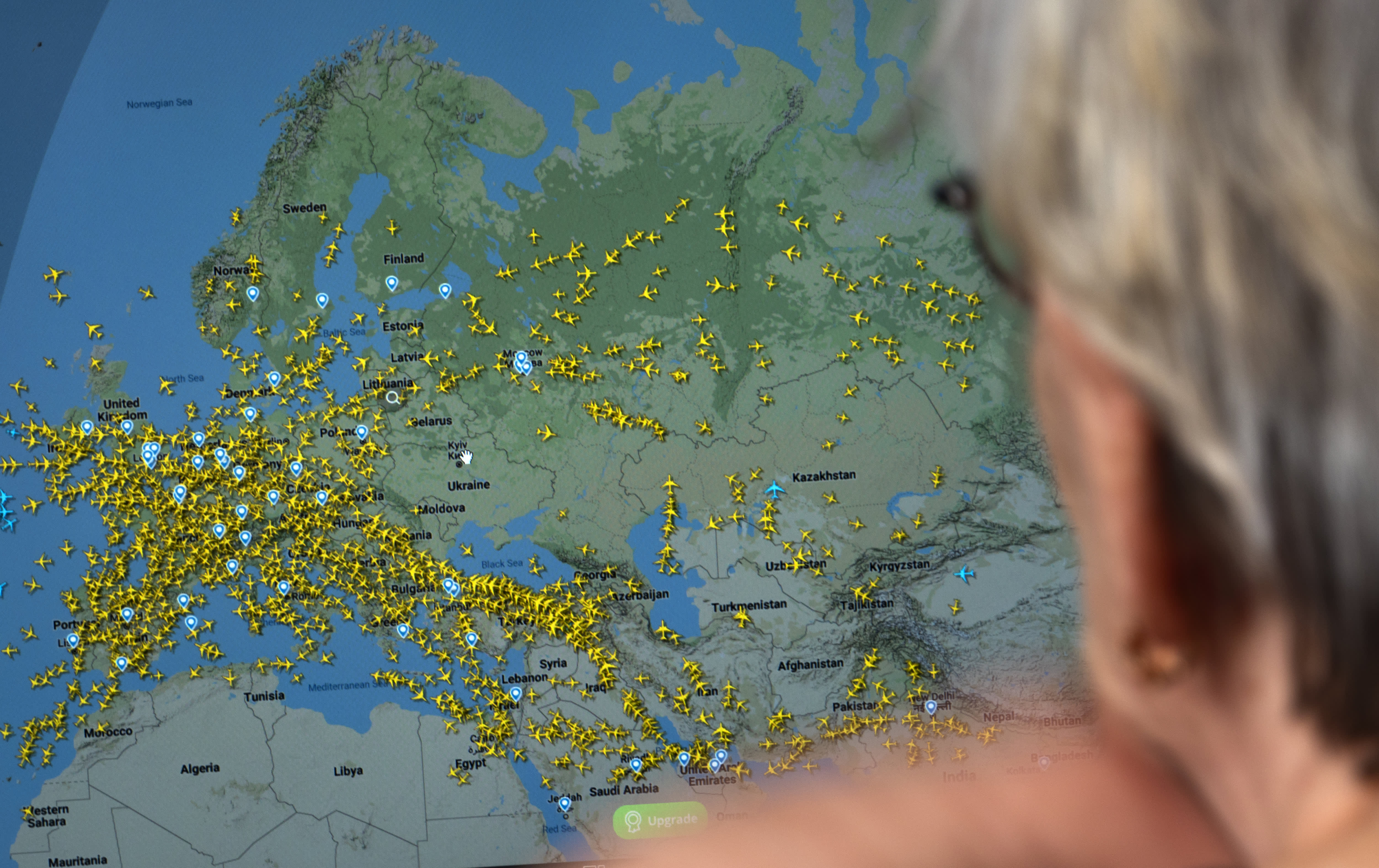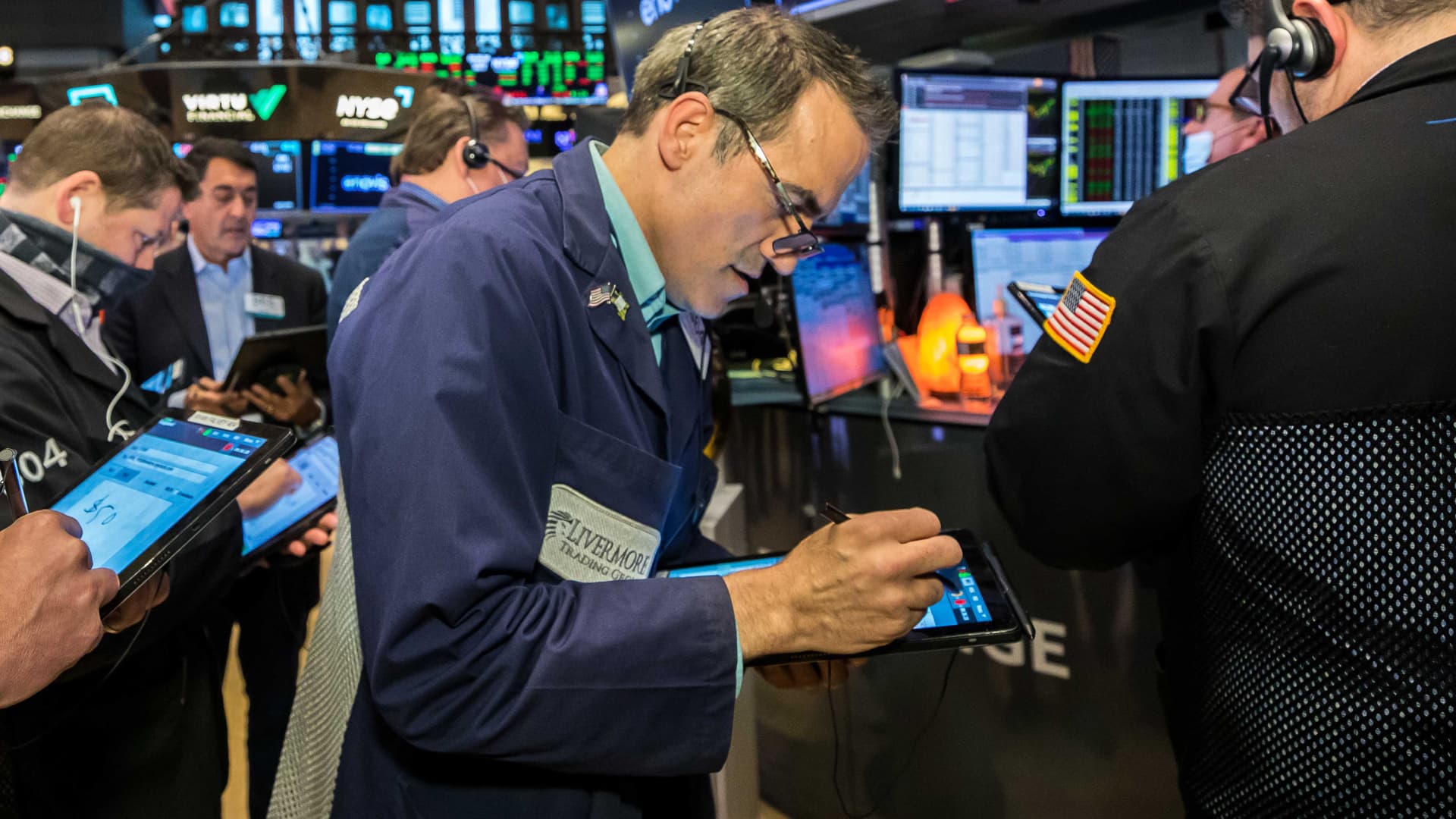Asia-Pacific markets mostly fall as Japan spending misses expectations; Hong Kong closes due to typhoon
Japan's household spending data, combined with pay numbers from Thursday, will give a clue about the Bank of Japan's monetary policy moves.

Office workers cross the street at lunch time near Tokyo Station on Oct. 20, 2022.
Stanislav Kogiku | SOPA Images | LightRocket | Getty Images
Asia-Pacific markets mostly fell on Friday as investors brace for a crucial jobs report from the U.S. and digested household spending data from Japan.
Japan's household spending data for July rose 0.1% in real terms from the previous year, compared to a 1.2% rise expected from economists polled by Reuters, and a reversal compared to a 1.4% fall in June.
Data from the country's statistics bureau said the average household monthly expenditure for July 2024 was 290,931 yen ($2,031.35), up 3.3% in nominal terms from the previous year.
Average household monthly income came in at 694,483 yen in July, 8.9% higher in nominal terms and up 5.5% in real terms from the previous year.
The weak spending report could constrain the Bank of Japan's options to raise rates, although this may be offset by the strong wage growth numbers from Thursday.
Japan's Nikkei 225 slipped 0.72% to close at 36,3191.47 and record its fourth straight losing day, and the broad based Topix was 0.89% lower at 2,597.42 after the data release.
7-Eleven's parent company Seven & i Holdings fell 1.73%, after it rejected a takeover offer from Canadian convenience store operator Alimentation Couche-Tard.
South Korea's Kospi was 1.21% lower, ending at 2,544.28 and the small cap Kosdaq tumbled 2.58% to also record a four day losing streak.
In contrast, Australia's S&P/ASX 200 climbed 0.39%, finishing at 8,013.4.
In Hong Kong, the city's markets will be shut today after the Hong Kong observatory issued a typhoon signal due to Super Typhoon Yagi.
The observatory expects to downgrade the storm signal at 12.40 p.m. Hong Kong time, meaning the markets are expected to be closed for the day. According to the Hong Kong Exchange, there will be no trading for the day should the Number 8 signal be downgraded after noon.
Mainland China's CSI 300 traded 0.81% below the flatline, closing at a fresh seven month low of 3,231.35.
Overnight in the U.S., all three major indexes fell as investors dumped risk assets and concerns mounted over the outlook for the U.S. economy.
The S&P 500 dipped 0.3% for a third straight day of losses, while the Dow Jones Industrial Average lost 0.54%. The Nasdaq Composite gained 0.25% after rising as much as 1.2% earlier in the session.
—CNBC's Samantha Subin and Jesse Pound contributed to this report.

 MikeTyes
MikeTyes 
































